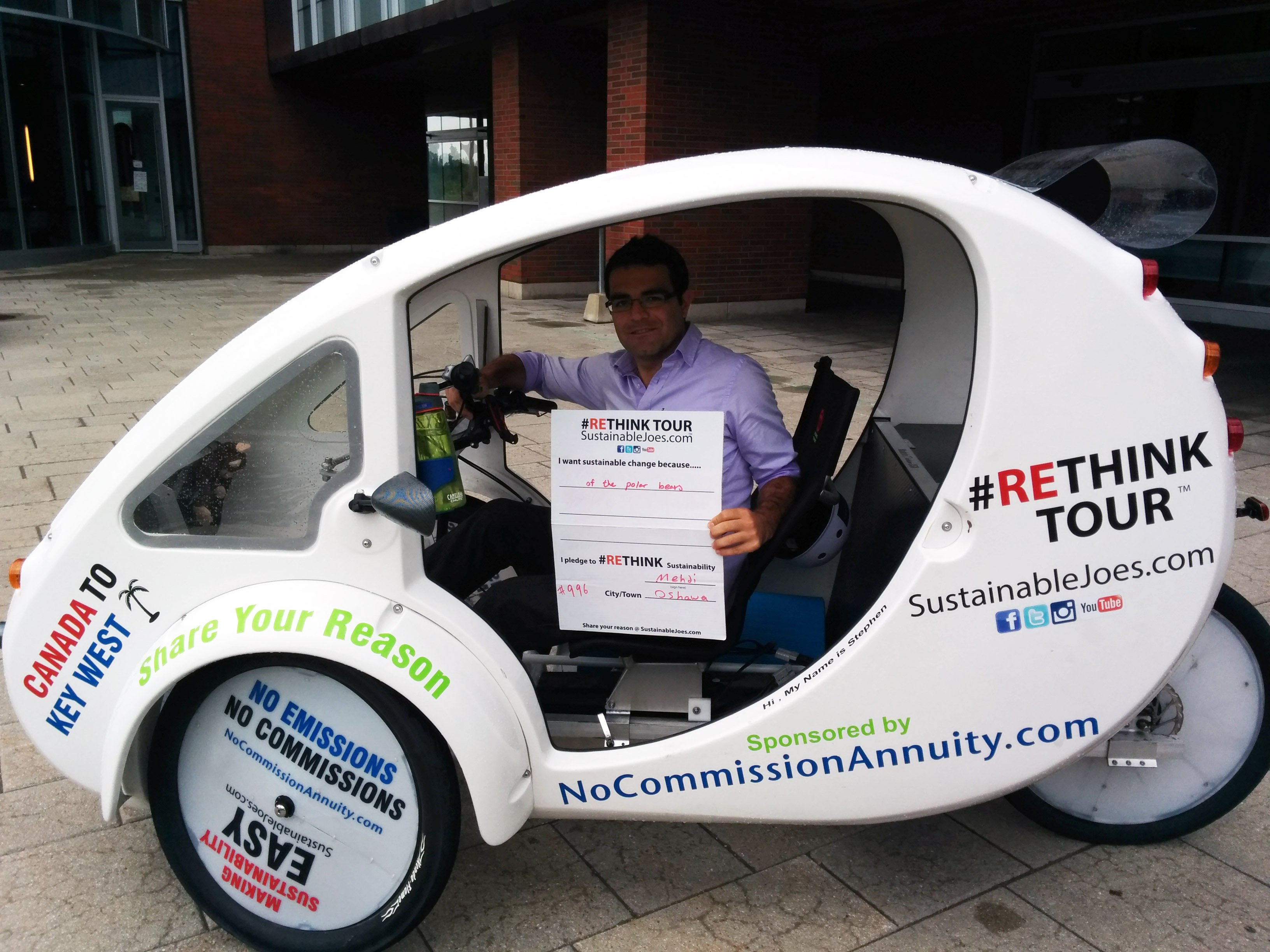SustainableJoes' #RETHINK Tour Visits UOIT
Posted by Mehdi Hosseini on August 13, 2014
SustainableJoes founder Stephen Szucs is traveling via a solar and pedal powered tricycle from Canada to Key West to ask individuals, communities, businesses and organizations to #RETHINK why we need sustainable change.
This week I had a chance to ride a trike; well only for a few seconds. The trike is solar-power assisted. Along with the solar power you can peddle; if you want to speed up or take a rest, just use the 500 W electric motor that runs on batteries. But the trike itself is not the main point. The main point is advocating sustainability and making Sustainability easy as Stephen Szucs does on the #RETHINK Tour.
Stephen founded SustainableJoes to pursue his belief in a sustainable today and tomorrow for everyone. On his 48 day tour (so far) around major cities in Southern Ontario, Stephen is asking residents for their ideas on sustainability and why they need sustainable change.
 When he asked me about the ways to make more sustainable changes, I answered: “by more efficient consumption”.
When he asked me about the ways to make more sustainable changes, I answered: “by more efficient consumption”.
But is that the only way? Is that the best way, as sustainability includes economy, the environment, and society? Do current plans for sustainable development work?
Experts suggest using wind power for electricity generation, or electric vehicles for short run commutes, but how about public (social) acceptance? Have we assessed all of the very important aspects of sustainability?
For a prosperous economy we need natural resources (e.g., Canadian oil sands and shale gas), but these impact the environment, not to mention the strong public opposition against their developments. During my quick chat with Stephen, I acknowledged his efforts to advocate sustainability. Hopefully this leads to a clearer path to environmental preservation.
He asked me, “how about human preservation”? Now that I think of it, suppose we achieved economic and environmental sustainability, what are the gains on social aspects? Statistics show that 58% of the world’s population do not have access to clean, reliable sources of energy (including electricity), and 783 million people lack access to clean water. These numbers are much improved over the 1990’s levels; however, to achieve sustainability (in all three areas – economy, environment and society) we still have a long way to run.
Filed under: Sustainability 101